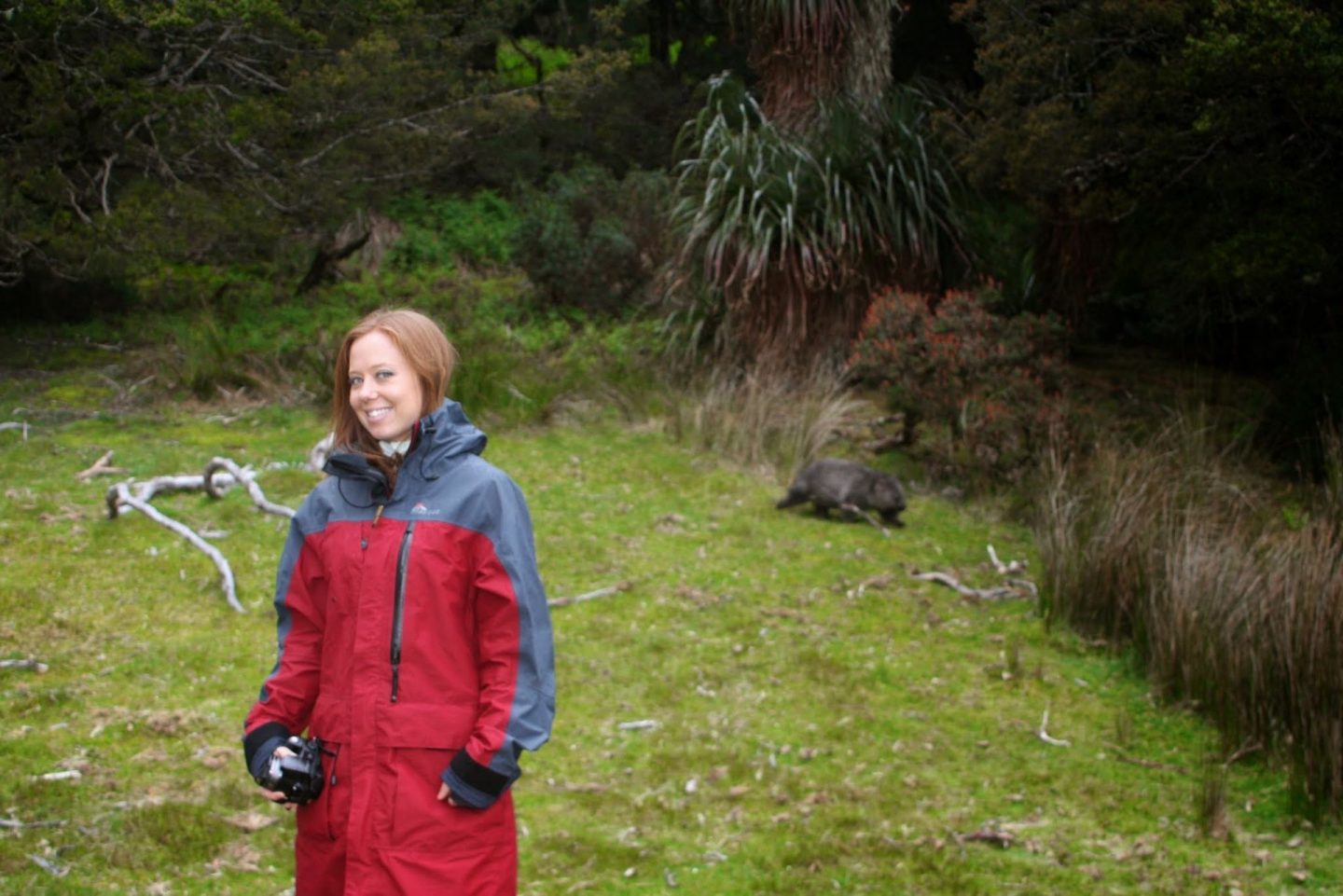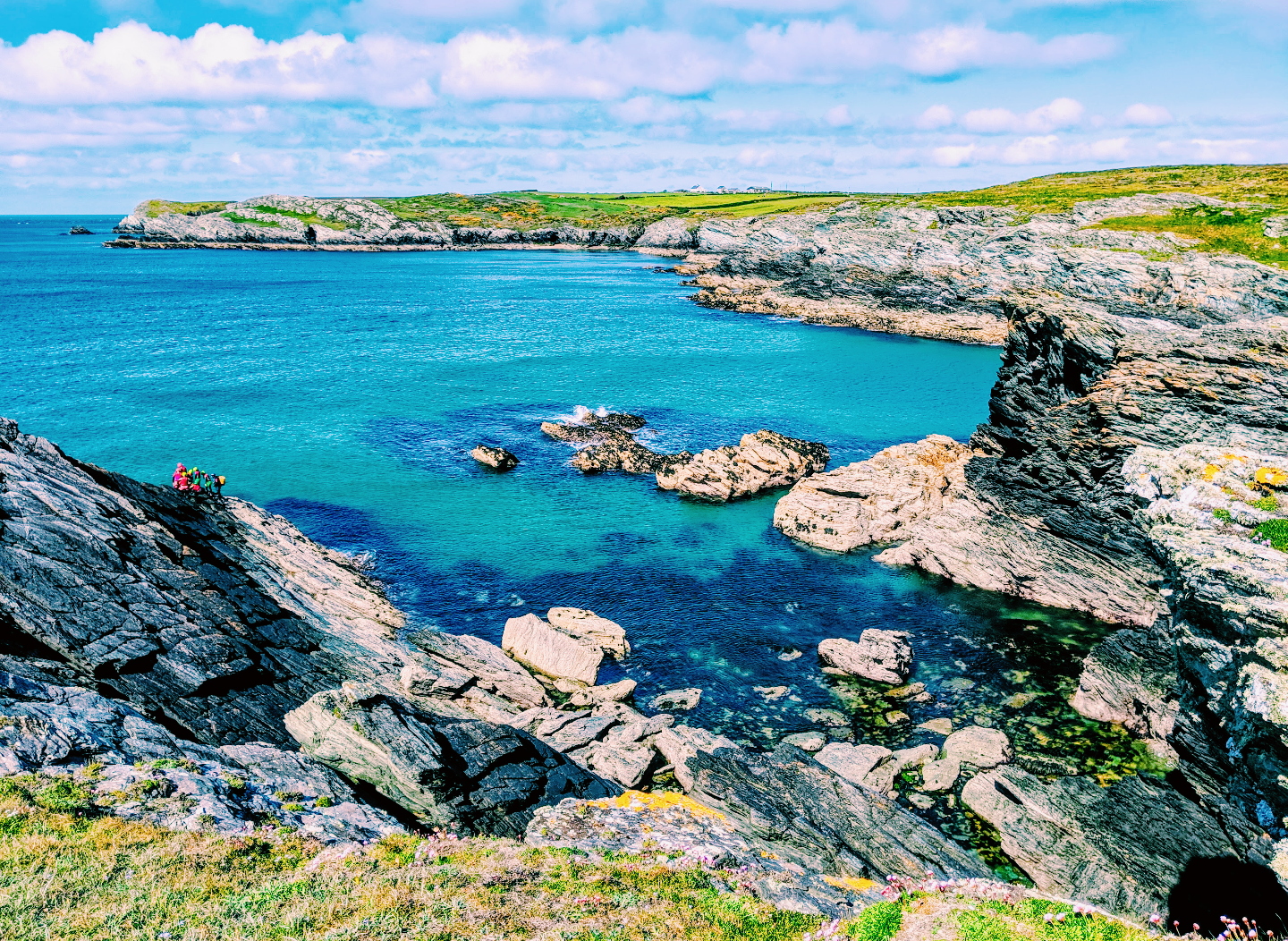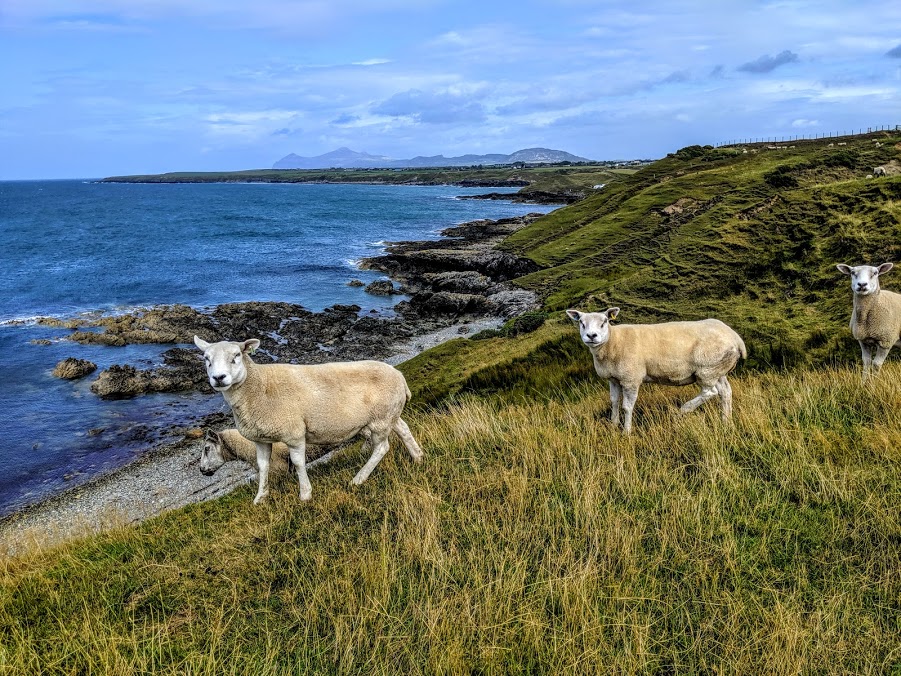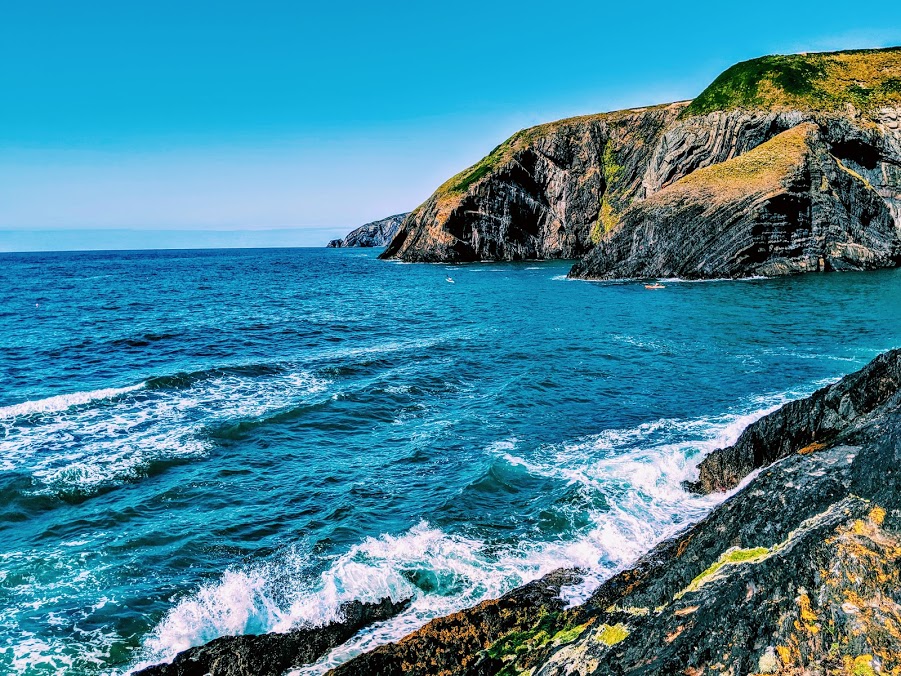“You don’t choose the day you enter the world and you don’t choose the day you leave. It’s what you do in between that makes all the difference.” ― Anita Septimus, Psychotherapist
I am super excited to share this interview with you, not only is Sarah warm-hearted, beautiful, smart but incredibly courageous too! I am so proud to call this woman a dear friend and a source of constant inspiration. Instagram @umsfromumbridge, Twitter @DrSarahClement, and Good Reads
1. Can you tell us something about yourself?
I am Sarah, a 38-year-old who perhaps goes on a lot of adventures, though I don’t always see them as such! My adventures tend to be outdoors, involve lots of travelling (well, until 2020), and are for both work and pleasure. I prefer visiting places that are a bit away from people and involve nature. The more biodiversity and the more opportunities for hiking, the better! Oh, and I always travel with my trusty friend, Travel Wombat!
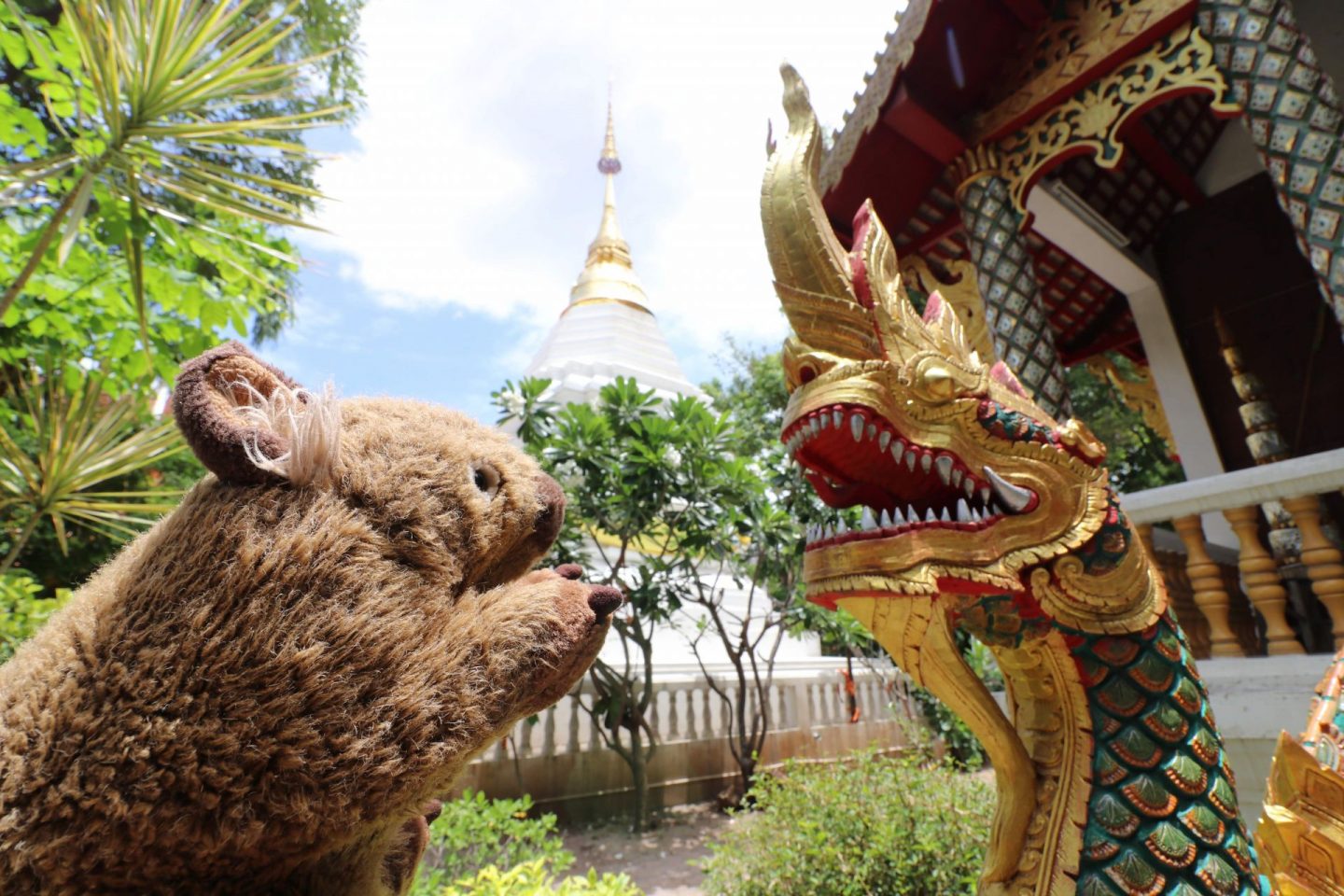
2. What is the first memory of an adventure you had? And why does it stand out?
If an adventure can be loosely defined, then I would say my first memories were playing in the trails at the back of our house. I moved around a fair bit, but at one point lived in an old colonial farmhouse in rural Michigan with 10 acres of land that backed up onto more land. I used to run through those trails endlessly, building little forts out of sticks and finding frogs, snakes, and birds that I would just watch for hours. I have a vivid imagination, and I used to run as fast as I could in the trails, then I would have little faux Congressional sessions where I would argue to an imaginary audience about issues I felt strongly about. This is all when I was about 7-10 years old. I was thus simultaneously convinced that I should become a professional runner and America’s first female president. This all makes me sound a bit mad, but it’s all to say that I really felt strongly – despite all sorts of evidence to the contrary – that I could achieve anything I set my mind to. I now know this is probably because of the warped ideas about the American dream I learned from a young age that aren’t really true, but I would say that this explains a lot about why I am so willing to take on new challenges.
3. Are there any women that inspire your adventures or that you look to for inspiration?
So many women inspire me that I am not even sure where to begin. The female mentors I discuss later inspire me. I am also incredibly inspired by strong female politicians and figures such as Ruth Bader Ginsburg and Alexandria Ocasio-Cortez. I am incredibly inspired by environmental activities, and right now, especially, all the young activists involved in the climate strikes. Amazing writers also inspire me, and if you want to have a look at some of my favourites, check out my GoodReads reviews. I am also inspired by physically strong women, and follow a number of weightlifters, powerlifters, and body builders, who remind me that women are entitled to take up physical space with their bodies and strive to be more, not less.
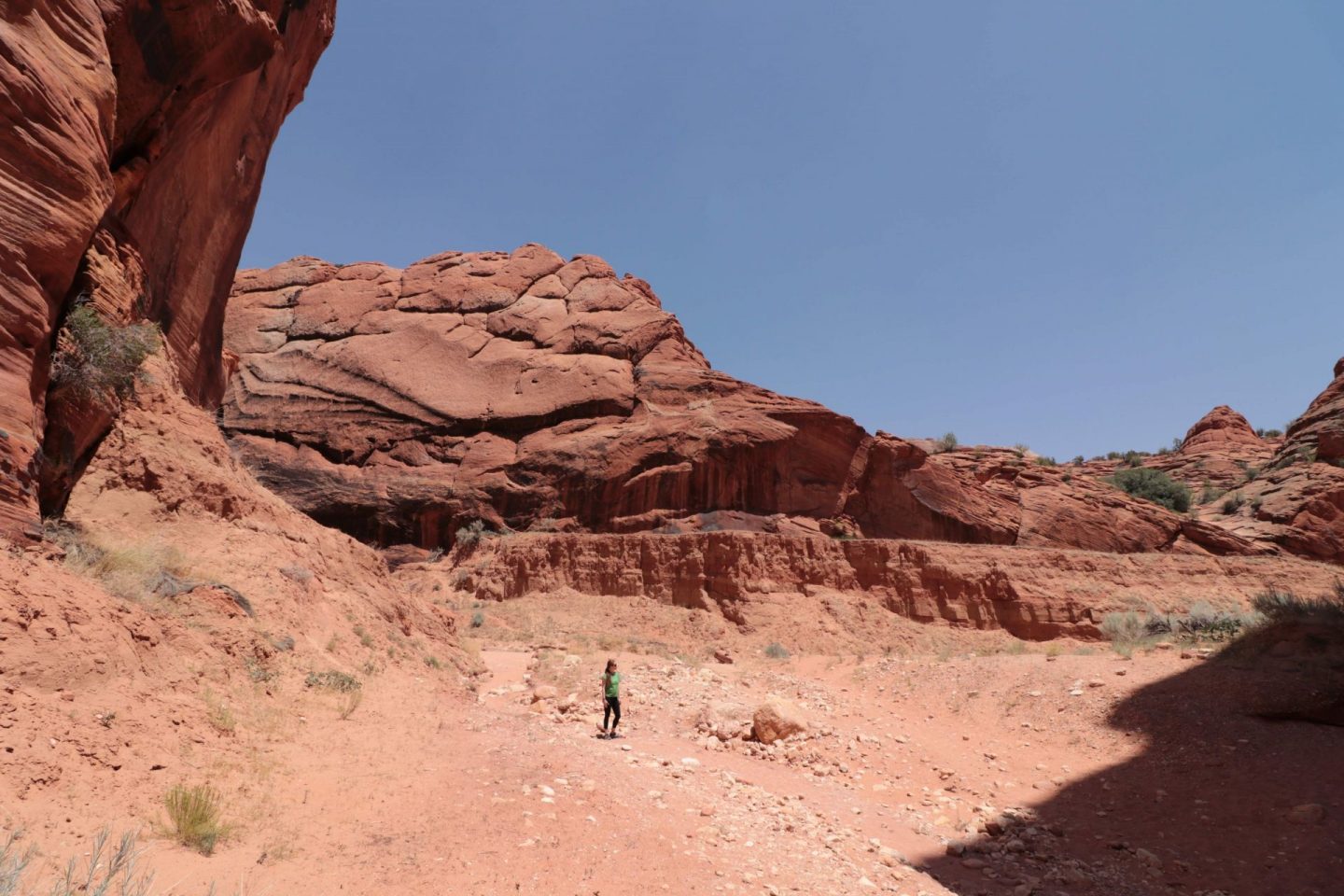
4. Can you tell us about growing up in America?
This is a big question! I grew up in post-industrial, rust belt America in a middle-class family. British people would call it working class, but I admittedly still don’t understand British class logic. I moved around a fair bit and lived in a lot of different towns and cities, many of which were the product of “white flight” from the centre of Detroit following race riots in the 60s. This meant I lived in a number of very religious, fairly close-minded places. I was the token atheist, and that meant that I was sometimes asked to go to church with friends. Sometimes that was a pre-requisite from their parents to allow our friendship to continue. I found it utterly bizarre, and even from a young age I couldn’t understand a lot about the context in which I grew up. Looking back, I think this is where I was a budding social scientist, as I wanted to know why people hated people who weren’t like them so much and tended to ask a million questions, much to the frustration of most adults. This is also where my interest in the environment as it intersects with social justice emerged, as I worked on issues like cleaning up contaminated sites, which are often in poorer communities as well as BAME communities. I felt eternally frustrated by the mixed messages I got about the American dream as accessible to anyone and the clear evidence that it was not.
On a more positive note, the beautiful wilderness in America was also influential on my life and perspectives. It is such a big, diverse country, and there are still massive areas where no one even lives, even if they aren’t technically “pristine”. Many people have written about the intimate connections between the American mind and ideas about wilderness (I highly recommend this book if you are interested in learning more) that had a profound impact in how I connected with the natural world that I am still untangling to this day.
5. Then can you tell us about moving to Australia?
I talk about this a bit more in #10, but basically I moved to Australia because I was offered a job by a former professor from my undergraduate programme. I had never even considered it, but jumped at the chance. I initially thought it would be for only 4 years, but I never knew I would fall in love with that place and become a citizen. A lot of people find Australian landscapes harsh or “messy”, but I fell in love with them. Not always immediately, but slowly as I spent more and more time outdoors and learning about Australian ecosystems. I lived in Perth and I still have a special connection to Western Australia, but I also love places like the Australian Alps and essentially all of Tasmania. There is far more diversity in that country than a lot of people give it credit for. I am a biodiversity researcher, primarily, and it’s a megadiverse country with biological importance on a global scale. I quickly realised that I explored Australia – and went on more adventures – than most people who grew up there did, and ended up teaching my Australian friends and family a lot about their own country! Australia is the first place I ever lived that felt like ‘home’. I didn’t know what that felt like until then. I became a citizen in 2014. It’s funny because people still, to this day, ask me things like “when do you go home next?” and it always gives me pause. What do they mean by “home”? Most of the time, they just assume home is where my accent lives. I urge everyone reading this to not make that assumption; home is much more complex than that, especially for immigrants.
6. And then you moving to England (Where I was lucky enough to meet you!)
Indeed, I did! You may guess by my aforementioned commentary that the move to such a small island that is so densely populated was a struggle. I felt claustrophobic, and couldn’t believe people could live in national parks (national parks are not inhabited in America or Australia). I was frustrated that you can climb to the top of a mountain, only for there to be 20+ people already at the top. I had been to the UK several times before moving here and explored the country a lot, so I knew what I was in for, but it was a massive adjustment.
I still struggle when I walk in many places, and see the evidence of just how dramatically people have changed this landscape. My views of what makes a healthy ecosystem often colours my view of a landscape’s beauty. But I have tried really hard to appreciate it for what it is, and go out of my way to see things that I do like. I have fallen in love with some places here, too, slowly, and in a different way that is tied up with complex emotions about being here during these tumultuous times. One of the chapters in my book, on cultural landscapes, was actually inspired by my UK experience. I couldn’t quite grasp why the degraded landscapes of the Peak District, for example, were viewed in such a sentimental way by British people, and I wanted to learn more. If I accept them as cultural landscapes and not as “natural” places, then I understand a bit better, I think. Hiking in many different places also helps me to appreciate them more, although I still strongly believe there is a need for renewed calls for stewardship of the countryside in the UK. I became a permanent resident in 2019, so maybe I can help with that, too.
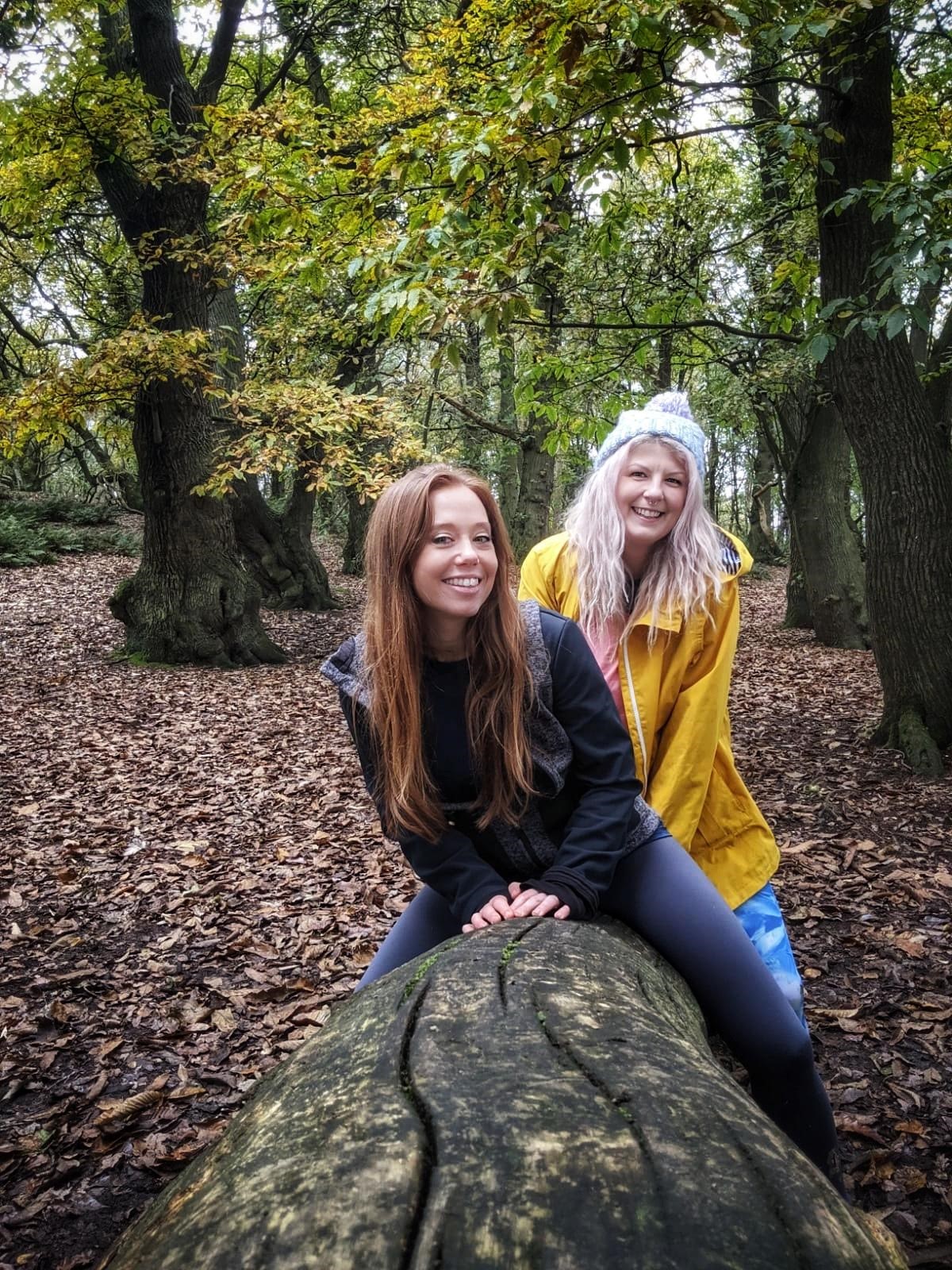
7. A lot of us would find moving to different counties pretty damn scary, how have you adjusted? Does it come naturally?
I have never found it scary, but it’s definitely not been painless. I think that technology makes it so much easier, but right now it is evident that technology is not enough. I have no idea when I will see my friends and family in America or Australia again, and it’s that lack of certainty that is the hardest. I think when you know that you will see people again, you can relax a bit more because you realise how easy it is to re-connect with the people you care about most when you see them. I am also an introvert, so those lonely months when I first move to a new place aren’t so bad. Don’t get me wrong, I immediately seek out people and groups to get involved with, but it takes a while to form the deep connections that I crave so much.
I would say that is the most difficult bit: you move away from everyone who knows you and your history; the things that make you, well…you. It can be really exhausting meeting new people all the time and getting to that level of closeness that you have with, say, childhood friends. But I haven’t lost those friends either. Moving to new countries has expanded on my connections to both people and places, and in doing so it makes me appreciate those things more.
8. Where would you love to move to next? (don’t because I would miss you)
Back to Australia! To be honest, though, I am not a big “planner”. I don’t like to plan out my life and never have. I try to seek out opportunities as they arise.
9. How does the UK outdoor community compare to other countries you have lived in?
I don’t really feel a part of the outdoor community here, mainly because I feel it is a bit too exclusive. I was really surprised when I started to see the way this community approaches the outdoors. For me, hiking is brilliant because it allows me time to think, to focus on the little things, and immerse myself in the natural world. It should also require minimal gear (especially in the UK!). This may be controversial, but I was surprised to see how many in the outdoor community want all of the gear, focus on “bagging” certain species or peaks, ticking things off lists, etc. I believe nature is something that you should enjoy with no agenda, that you need no special gear in most cases*, and that focusing too much on measurable achievements undermines the benefits of outdoor experiences. At what point does “bagging another Wainwright” become akin to clocking up another mile on a treadmill or ticking another country off a list? Nature is to be experienced, not conquered.
It’s difficult for me to say how the outdoor community compares because I see myself as just a person who enjoys the outdoors, and who is also a naturalist. I don’t like to make my hobbies my identity, even if I enjoy them immensely. Just as I would never call myself a “runner” despite running since I was 11, nor would I call myself a “weightlifter” despite lifting weights since I was 12.
*be safe, of course, and don’t be that person that hikes up Ben Nevis in winter in shorts without a map, compass, or rescue plan.
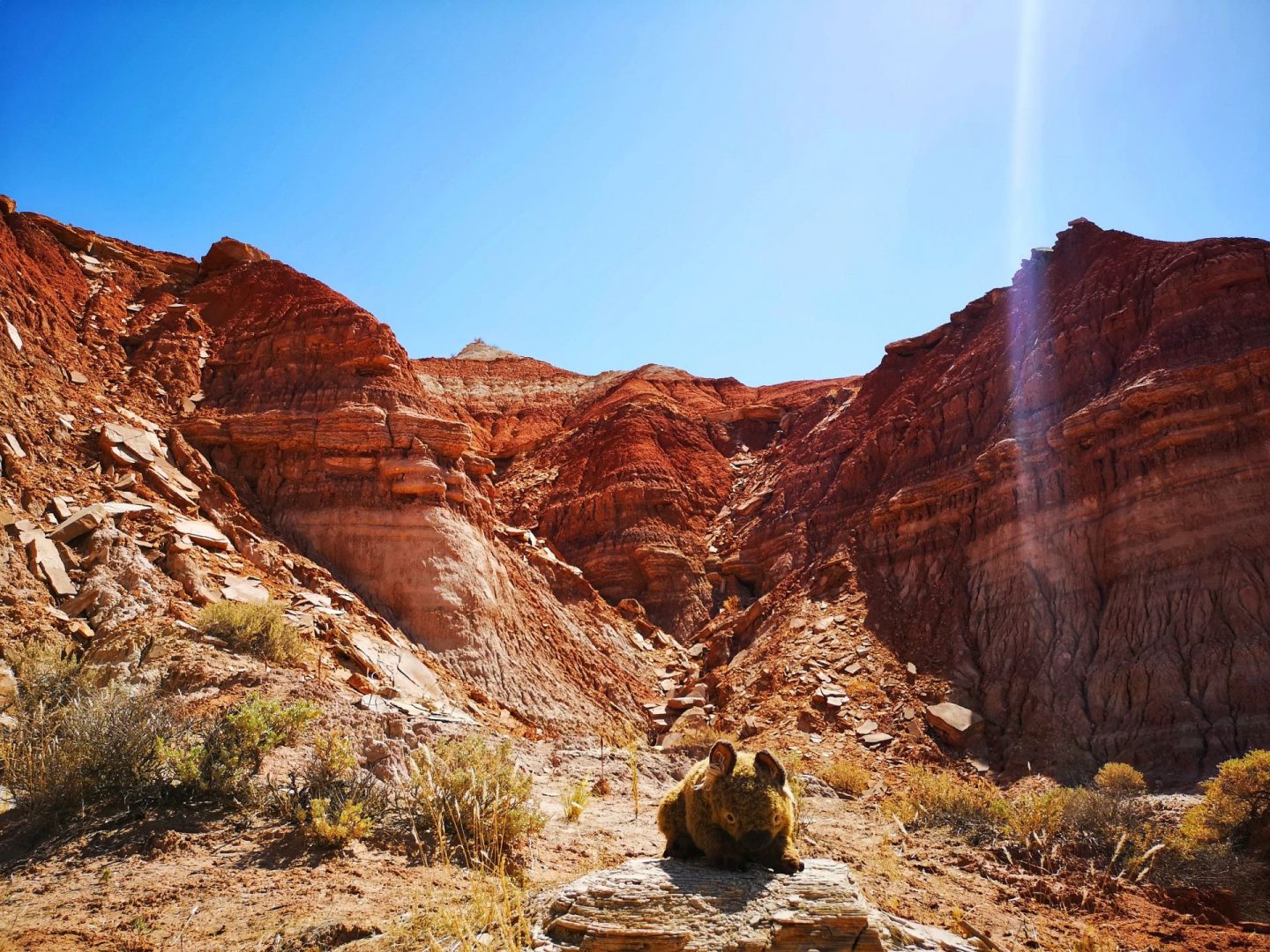
10. Can you tell us about your career?
I have been working in environmental science and policy for 18 years, but in really diverse contexts and on so many different issues. I have worked in government, NGOs, private consultancies, and now academia, and I have been a field scientist, policy advisor, non-academic researcher, and now an academic. I went to university with firm plans to become a music teacher, but eventually admitted to myself that I couldn’t stand turning my art into a science. So I studied science instead. Once I became an environmental scientist, I gained experience working on different aspects (e.g. water, soil, and air pollution; ecological restoration; environmental impacts of agriculture); but I realised that I was most interested in why people damage (or protect) the environment. I became interested in the complex, messy world where society and the environment overlap. I have a mentor from my undergrad at university who knew I was bored just working in the field and writing technical reports, and she asked if I wanted to move to Australia and work as an environmental social scientist. I had never been to Australia, but I just said yes.
It changed my career and the trajectory of my life. I met my future PhD supervisor whilst subcontracted to work on a project that examined perceptions to forest thinning. I came to her one day and said I thought maybe I would quite like to do a PhD, and she excitedly told me about a project she had and a fully funded PhD. I hadn’t even done a masters, but I was able to use my work experience as evidence of my capacity to undertake a PhD. My PhD was the best time of my life. I couldn’t believe someone actually paid you (very little, but still) to read, do research, and write. It was stressful at times, sure, but it was great!
Fast forward to the last 6 months of my PhD, and I moved to the UK. I found this a real struggle because I am a biodiversity researcher, and the UK is one of the places with the least intact biodiversity in the world. There didn’t seem to be much demand for people like me, but I eventually – after a brief diversion in the civil service – got a job in academia. It’s a stressful job in many ways but also extremely rewarding, and at the end of the year, I will be publishing my first book! The book is about ecosystems and the Anthropocene. It’s about how humans are shaping the planet and what we might do about it, so it really all comes full circle. It was the complex relationships between humans and the environment that brought me here in the first place, and now that’s what I do. I cannot even pretend to fully understand those relationships even now, yet I love the challenge of learning more about it every day. My interests are so diverse, which is not an asset in academia, but I can’t help but be curious about so many different things. It’s just in my nature to see things and ask why, how, and what can we do?
11. As a academic do you find that it is a “boys club”? If so can you tell us of any negative experiences you have had?
I certainly do. I think I may have a slightly different experience on this as an American in Britain, though, to be honest. My American accent, and the way that I speak with confidence, convinces many people that I actually am confident. This is not strictly true, but it means that sometimes I elbow my way into “boys’ clubs” more easily than I otherwise would have. Yet it also means that I am sometimes the subject of criticism for some of the same characteristics that are usually celebrated in male academics. For example, men often have higher citation rates because they cite themselves more than women. I am an evidence-based person, so when I saw this, I vowed to address it in my own work. Yet if I cite myself “too much”, I can be criticised for being arrogant. With this and so many other issues, however, there is no Goldilocks zone, and it would be folly for me to try to find a place where people thought I was just confident enough, but still humbly deferential to authorities. I will always be walking a precarious line.
12. And how do you overcome the negative responses?
So far I find that my dogged adherence to logic is the best defence. If you simply point out inconsistencies in the system again and again and again, you eventually get a little bit of movement. I suspect that this will be a lifetime project. Academia is paying a lot more attention to diversity in all areas, and I think there are a lot of people who are genuinely interested in change. But there is still a long way to go yet.
13. Do you have any advice for females wanting to go into academic career but are worried they are not smart enough or won’t fit in?
Mentorship is absolutely critical. I have had strong female mentors my entire life. I watched my mother work her way up from the factory floor to management positions, and she taught me how to speak truth to power by being ethical, dedicated, and competent. My long-time mentor, who was the reason I moved to Australia, is one of the smartest women I have ever met, and she just always showed me how to use critical thinking and logic to solve almost any problem in a structured way. And my PhD supervisor was the savviest female academic I think I have ever met. She really pushed back on the self-doubt that plagued me, but also my need to be “perfect”, and taught me how to take criticism with grace. She also taught me about the rules of the game and how to play the game because academia is a different world than you think it is as an outsider. There have been many other important mentors over the course of my life, but that would be my main advice: build a good network of mentors around you. Mentors will be good at different things, and they provide you with a variety of skills and perspectives. It can be difficult as a strong-minded person to ask for support, but I think a mentor that can provide you support and constructive critique in equal measure is invaluable.
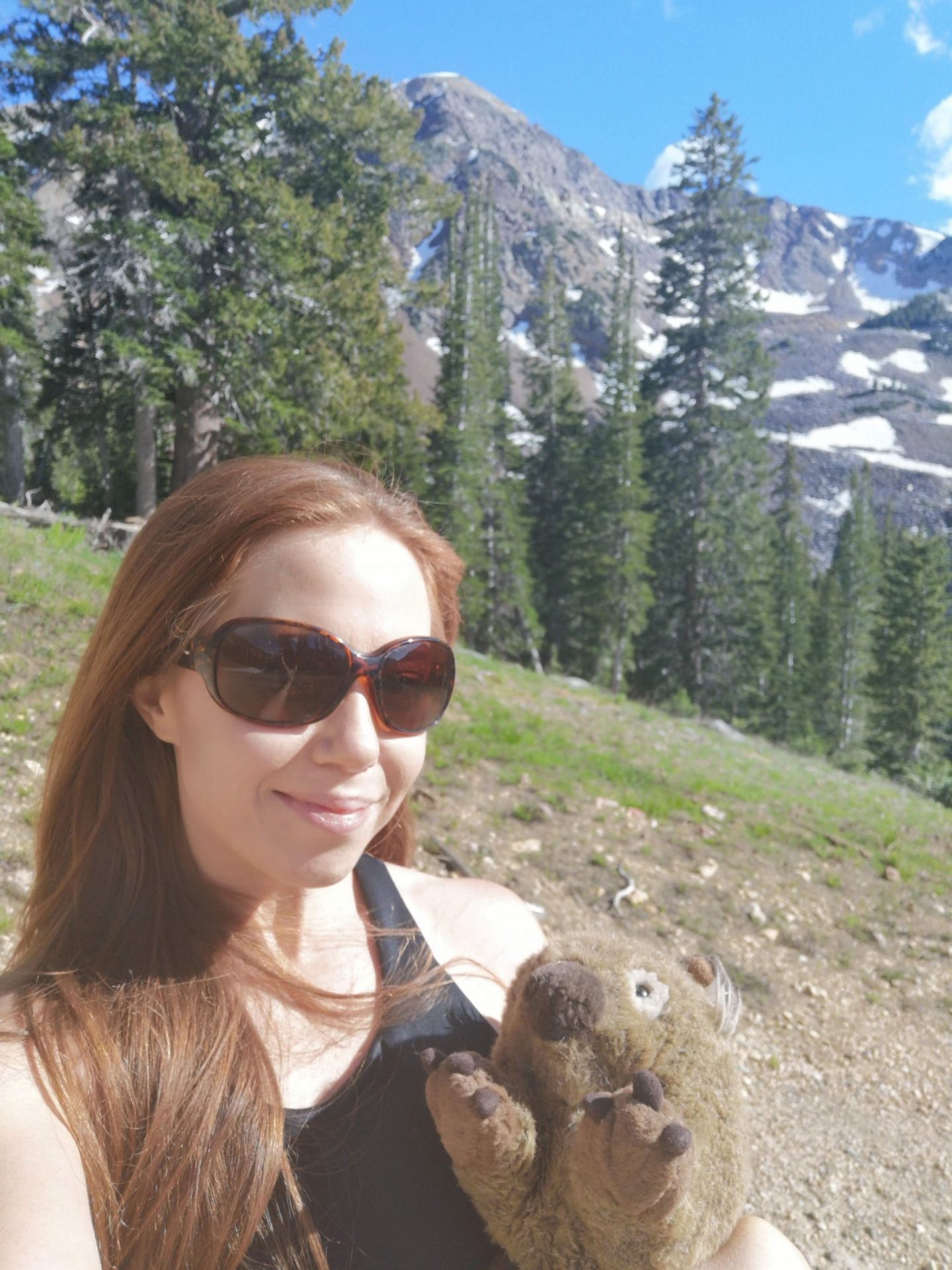
14. Can you tell us about your eating disorder?
I talked a lot about this in a post on your blog for National Eating Disorder Awareness week a few years ago, and I would love for people to read that. I struggled with anorexia and other eating disorders for over a decade. I never thought I would fully recover because most people tell you that you always deal with it in some way. I don’t agree with that, and that idea held me back from recovery for so long. I encourage anyone who is struggling to seek out stories of recovery, especially from people who are like you, and of course to also get help from a qualified professional. I would also urge you to avoid unqualified “coaches” online, as there seems to be an explosion of them in recent years.
15. You are half my height and easily three times stronger than, can you talk us through your training program and why you workout?
Well, let’s get the record straight, I am a normal height, not 3 feet tall! I actually started working out when my eating disorders first developed, so my relationship with exercise has not always been healthy. However, exercise is now one of the most important things I do for my mental health. I lift weights 4 days a week, run 3 days a week, and do some yoga most days, as well as walking on the days I don’t run. This is a much more sustainable routine than in years gone past when I went overboard!
I am most in love with strength training because it is the most empowering exercise that you can do, particularly as a woman. When I started lifting weights, it was the days of “heroin chic” and extremely thin models. As a 12-year-old female in 1994, I was really bucking that particular trend. I never got particularly strong because I was also starving myself back then, but now I would say I am pretty strong. I am not winning any awards any time soon, but I am still progressively getting stronger every day. Right now, I am doing the most amazing programme called Stronger by the Day, and it literally does what it says on the tin.
For yoga, I love YogaDownload, and have been a member there for 10 years. For running, I ran every day until I injured my hip in 2008 whilst training for a marathon, so now I am much more reasonable. I run half marathons regularly, and they are a much more manageable distance that still allows me to do all the other things in life that I enjoy. But I have found I can still run a pretty good time whilst only training 3 days a week. If I could convince every runner to lift weights, I would have done the world a service. I always power through every hill and pass so many runners during races because they just haven’t built the strength they need to support their running!
16. Let’s talk garden! How long have you been growing vegetables for? And what is the reason for growing them yourself? What do you grow?
I have been involved in gardening since I was a kid, when we had our own garden and my mother has an amazing green thumb. Once I moved out of home and started hopping from place to place (I think I counted that I have lived in 21 places in my 38 years!), I didn’t have a garden for a long time. So, my current garden is only 2 years old, but I absolutely love it! Much of it is kale of various types and other greens (e.g. lettuce, spinach, green beans, sprouting broccoli), and the typical things like tomatoes and herbs. This year has also included beetroot, cucumbers, strawberries, and brussels sprouts. I have already harvested enough cucumbers for 3 jars of pickles! Every day is a learning experience, so I wouldn’t say I am very good at gardening yet. But the reason I love it is because it allows me to turn off my worries and just potter around outside with no real agenda. And yet I actually end up producing something. So much of academia is just writing up stuff on your computer. It’s a beautiful thing to produce something tangible and get your hands literally dirty. I envy people who have jobs where they actually build things and can see the fruits of their labour.
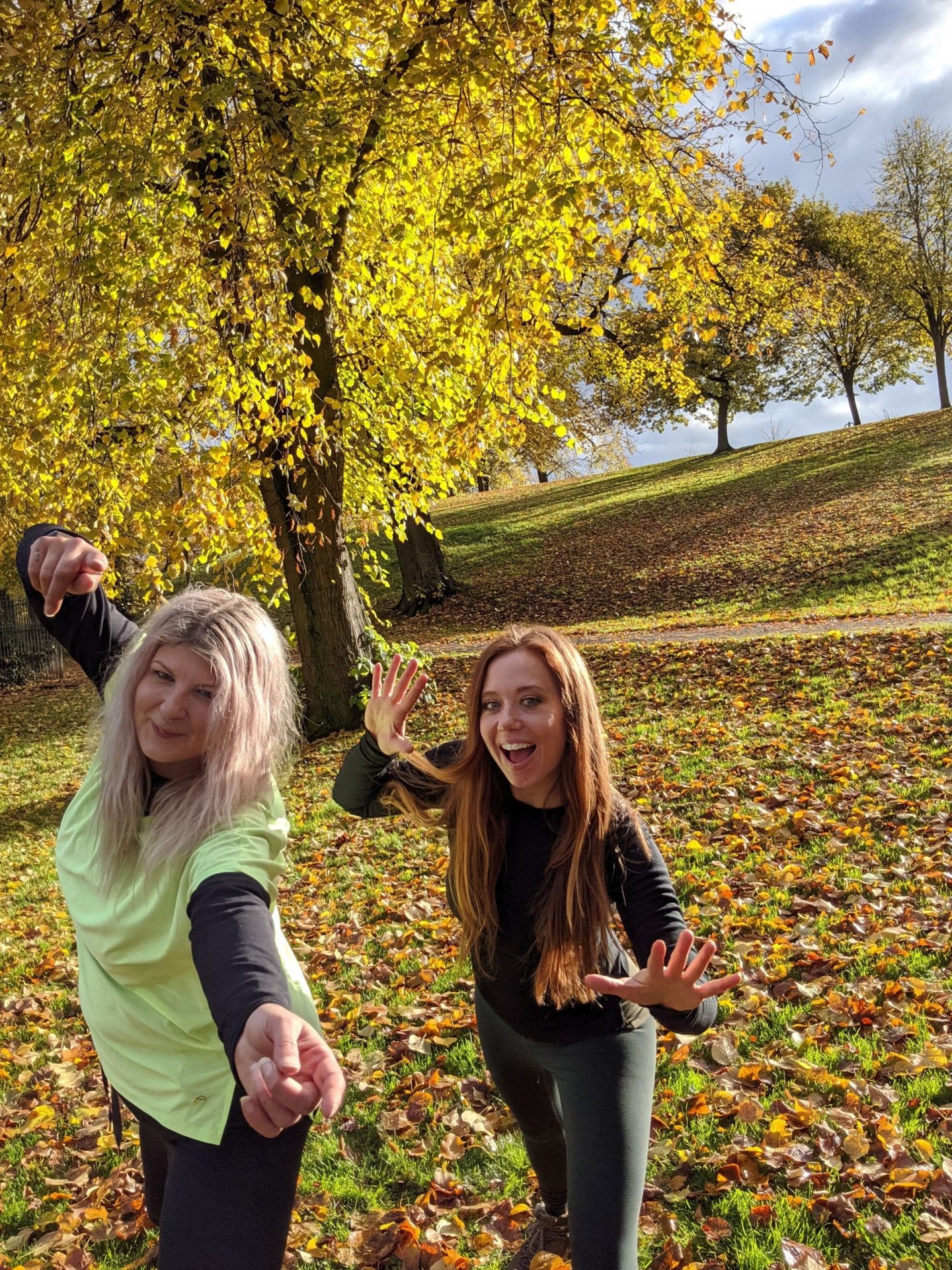
17. Sarah is an environmental scientist (I am forever asking her stupid questions, she always knows the answers to) for someone wanting to know more about our environment, impacts and in general improve their knowledge (Just be more aware of what we could be doing) Do you have any resources we could start with?
There are so many resources, it’s tough to know where to start! I think it also depends on where you live. There are so many good books written by British authors. One of my favourites is The Inheritors of the Earth by Chris Thomas. I would love for every hiker to read Inglorious: Conflict in the Uplands by Mark Avery, particularly if you hike in the Peaks. I also like Where Do Camels Belong? by Ken Thompson and Rambunctious Garden by Emma Marris. One of the best books I recently read on the Anthropocene is called The Human Planet by Simon Lewis and Mark A. Maslin. The Sixth Extinction by Elizabeth Kolbert is a harrowing account of the biodiversity crisis. The book Our Place: Can We Save Britain’s Wildlife Before It Is Too Late? by Mark Cocker is one that many outdoor enthusiasts would benefit from reading, I think. Again, I review all of these on GoodReads, if you want to have a look.
If books aren’t really your style, there are some great podcasts. Resources Radio is great, particularly for Americans. The Wild with Chris Morgan and The Overstorey by Sierra Club is great for anyone. Costing the Earth is particularly good for British folks. A Sustainable Mind is good for those who are interested in becoming more conscious consumers, though I must always caveat this with you cannot buy your way to a better world! If you look to buy more sustainable products, it is even more important to just reduce your consumption. Full stop.
There are also a lot of great online courses out there, with just a few listings here.
18. What do you think the UKs biggest misconception is when it comes to the environment?
I think people seem to think that if something is green it is automatically good. If they see green space or a green landscape, a lot of people think that is healthy. Or maybe they see a pasture and think that this is a healthy grassland, when it probably is what is known as “improved” pasture that is not biodiverse and replaced a native grassland that had many more species. At the same time, I think there are efforts to prey on this situation by telling the British public that green space that is “low quality” is not deserving of protection. There are efforts all of the time to erode the amount of greenspace in the UK in order to build housing, and many people try to say that we need to build on the greenbelt to provide affordable housing. It’s just a fallacy on so many levels. Affordable housing isn’t built on greenspace, and there are so many unoccupied dwellings that exist already, and so much brownfield land that could be remediated. The reality is that it is more expedient to build on the greenbelt. I wish that there was more widespread understanding of just how important greenspace is for the health of people, the economy, and the environment.
19. If we did one thing today that is a positive step for the environment what could we do?
Write a letter to your MP demanding action on climate change or another issue that you are passionate about. I am talking about a real letter, not a form letter from a website. I know this may seem a bit foolish in the current political climate, but remember this: the RSPB has more members than all of the political parties combined. I believe that British people do care about nature, and that’s one of the reasons they love to spend time outdoors and join these organisations. Imagine if we took that care and leveraged it towards political change. It would be difficult to ignore if that many people used their voice. I am not saying it would change things overnight, but I think the lack of political discourse on environmental issues needs to be remedied for change to occur.
20. What are 3 pieces of advice you wish you knew when you were younger?
– Don’t be ashamed to use your voice, even if people don’t like it.
– No one actually knows what they are doing, even if they seem intimidating.
– Just because you fail sometimes, doesn’t mean you didn’t try hard enough. Sometimes the system really is just rigged, and sometimes it’s just bad luck.
